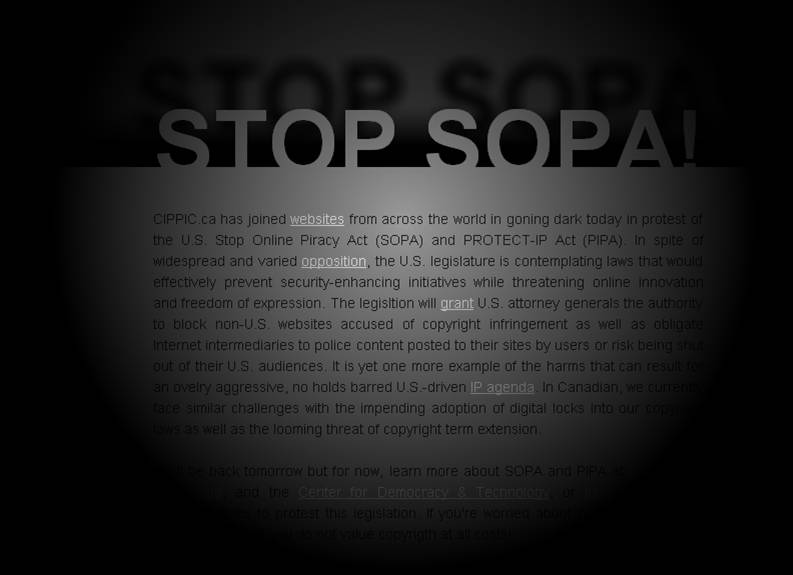The CRTC issued today the results of Broadcasting and Telecom Notice of Consultation CRTC 2011-344, a 'fact-finding' expedition launched in may of this summer with the objective of re-examining the impact of online video distribution services (referred to somewhat derogatorily as 'over-the-top' services) on traditional broadcasting Act objectives. The fear underpinning this fact-finding expedition was that new online video services such as Netflix will introduce competition a character that traditional broadcasters cannot compete with. In its submission, CIPPIC argued that cries of alarm from traditional broadcasters are greatly exaggerated, and that the commission should refrain from taxing or otherwise regulating online video services or risk stifling online innovation and service migration. CIPPIC also argued that, by its nature, the Internet avoids problems relating to distribution of Canadian content as issues of scarcity do not arise. In its report, issued today, the Commission adopted this 'hands-off' approach, at least until the issue is scheduled for re-assessment in 2015. The Commission also mentioned the need to develop new tools for more accurate assessment of the impact and scope of online video services, and, unfortunately, appeared to have accepted the need to monitor the 'out of control' network (wireline and mobile) traffic growth online video is generating. CIPPIC has addressed traffic growth fear-mongering in past submissions to the CRTC, and most recently in its comments and replies to the TNC CRTC 2011-77.

